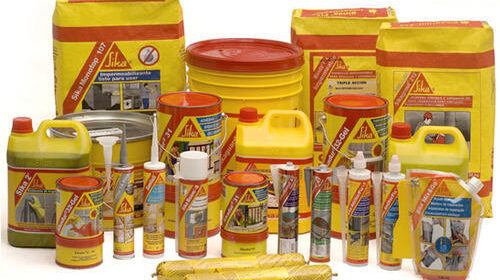Imposition of Various Regulations Regarding Environmental Concerns to Drive Global Biofuel Additives Market
Global Biofuel Additives Market information from 2019 to 2028 recognizes the following companies as the key players in the global biofuel additives market—Eastman Chemical Company (US), BASF SE (Germany), The Lubrizol Corporation (US), Evonik Industries AG. (Germany), Afton Chemical (US), Infineum (UK), Biofuel Systems Group Ltd. (UK), Chemiphase Ltd. (UK), NALCO (India), Chevron Oronite Company LLC (US), Clariant AG (Switzerland), and Fuel Quality Services, Inc. (FQS) (US).
Market Highlights
The global biofuel additives market is projected to be valued at USD 27,520.28 million by the end of 2028, registering a CAGR of around 14.2% during the forecast period.
Biofuel additives are the key constituents of petroleum products used for automobiles and transportation purposes. For instance, compared to conventional fuel gasoline and diesel, biodiesel tends to oxidize, which makes its additive play an important role. The diminishing petroleum reserves and the growing environmental concerns drove the researchers and market manufacturers for better and efficient approaches for producing advanced biofuels from biomass as a feedstock. Biomass provides an ultimate alternative to fossil resources. In actual fact, biomass is the only sustainable source for organic molecules and is the ideal substitute compared to petroleum for the production of biofuels and chemicals. It is an abundant, widespread, and inexpensive energy resource resulting from organic substances, including agricultural residues, perennial grasses, forest resources, wastes, algae, woody crops, and others.
The primary factor driving the global biofuel additives market is stringent emission norms and regulations for environmental and human safety. Additionally, increasing automotive production and their harmful emissions supports the growth of the global biofuel additives market. According to the WHO, around 4.2 million premature deaths globally were reported due to outdoor air pollution. In 2019, GHGs released by the transportation sector were over 25% of the global emissions, according to the Environmental Protection Agency. The high emission of GHGs has resulted in the imposition of norms by several organizations pertaining to exhaust emission. According to the European Union, consumption of energy is higher in the roadways sector, which is 82% compared to the other 18%, which comprises rail, aviation, non-specific transport, and pipeline transport sectors. Thus, emissions from the automotive sector highly contribute to GHG emissions. Owing to these factors the biofuel additives market is expected to gain am major traction during the forecast period.
COVID Impact Analysis
The outbreak of COVID-19 resulted in the shutting of factories and businesses, canceled air transport routes, and lockdowns, negatively impacting the industry. However, with the lift of lockdown measures and trade restrictions, the demand for fuel additives is likely to gain pace and drive the market growth.
The governments and managements have imposed several fiscal and monetary policies across the globe to limit the damage caused by the pandemic, which is expected to result in certain relief for consumers.
Segment Analysis
The global biofuel Additives market has been segmented on the basis of metal type, technology, vehicle type, and region.
On the basis of product type, the global biofuel additives market has been segmented into antioxidants, detergents, lubricity improvers, corrosion inhibitors, octane, cetane & cold flow improvers, dyes & markers, and others. The antioxidants segment accounted for the largest market share in 2020, with the highest CAGR of over 10%. It is extensively used in gasoline and other petroleum products as an additive to reduce oxidization which is expected to boost the global biofuel additives market.
By application, the biofuel additives market has been categorized into diesel fuel additives, heavy fuel oil additives, shipping fuel additives, gasoline fuel additives, and others. Among these, the diesel fuel additives segment emerged as the fastest-growing segment during the review period. Diesel fuel additives are increasingly used in diesel engines and the transportation sector.
Key Findings of the Study:
The global biofuel additives market is projected to reach a value of USD 27,520.28 million by 2028, with a CAGR of around 14.2% during the forecast period from 2021 to 2028.
-
- Asia-Pacific accounted for the largest market share in 2020; this is due to the high production and sale of automobiles in China, India, and Indonesia.
-
- Middle East & Africa is expected to be the fastest-growing regional market registering a CAGR of over 9%.
-
- With the rising concern regarding energy conservation and climate change, the demand for reduced toxic emissions engines and fuel is increasing rapidly, which is expected to favor the growth of the biofuel additives market in the coming years.
The proliferating automotive industry in Latin America and the Middle East & Africa, coupled with a focus on product innovation and technology development, are the key opportunities in this market.

